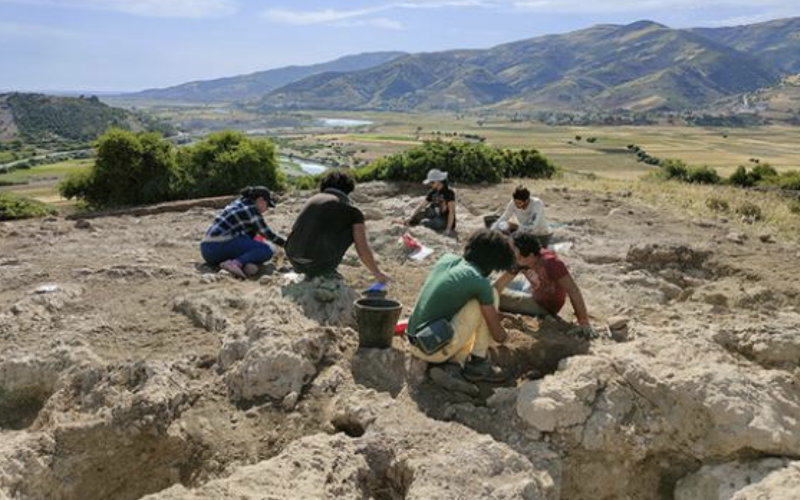Oldest Bronze Age Site in Morocco Unearthed Near Strait of Gibraltar

An international team of researchers has discovered the oldest Bronze Age site in Morocco.
According to the study led by Hamza Benattia Melgarejo, a doctoral student in classical and protohistoric archaeology at the Faculty of Geography and History of the University of Barcelona, the results of which were published in the journal Antiquity, the excavations were carried out on the prehistoric site of Kach Kouch, located near the Laou River and the Strait of Gibraltar, and 30 kilometers southeast of Tétouan, in northwestern Morocco. This site would be the oldest of the Bronze Age in the Mediterranean Africa, with the exception of Egypt.
These excavations reveal human occupation at different periods between 2200 and 600 BC. A first would cover the period 2200-2000 BC. According to the researchers, this would be an occupation contemporary with the transition of the Bronze Age to neighboring Iberia. A second, 1300-900 BC, is a dynamic period in the history of the site, the researchers indicate, where they found evidence (wood manure, rock-cut silos, worked stones) proving the existence of an established agricultural community in Kach Kouch before the Phoenician presence in the Maghreb. This population cultivated barley and wheat and raised sheep, goats and cattle.
A third phase, extending from 800 to 600 BC, reveals the adaptability of the inhabitants of Kach Kouch who began to make objects in iron or based on stone or painted pottery. "Kach Kouch is one of the first well-documented examples of continuous settlement in the Maghreb and tells a very different story from the one that has long existed: it shows the history of dynamic local communities that were far from isolated," explains Benattia, adding that "the excavations of this site are a step further towards correcting these historical prejudices and reveal that the Maghreb was actively participating in the social, cultural and economic networks of the Mediterranean."
Related Articles
-

Quebec’s International Student Crisis: UQAM Faces 39% Drop as Government Policies Spark Global Concern
5 September 2025
-

Surge in UK Train Phone Thefts: One Device Stolen Every 44 Minutes, Many Ending Up in Morocco
5 September 2025
-

French Retirees Abroad Face Digital Revolution: Biometric App Replaces Traditional Proof of Life
5 September 2025
-

Fake Colonel Arrested: Massive Fraud Scheme Uncovered in Morocco’s Southeast
5 September 2025
-

Royal Rift: Macron and Morocco’s King Clash Over Pegasus Spyware Scandal
5 September 2025